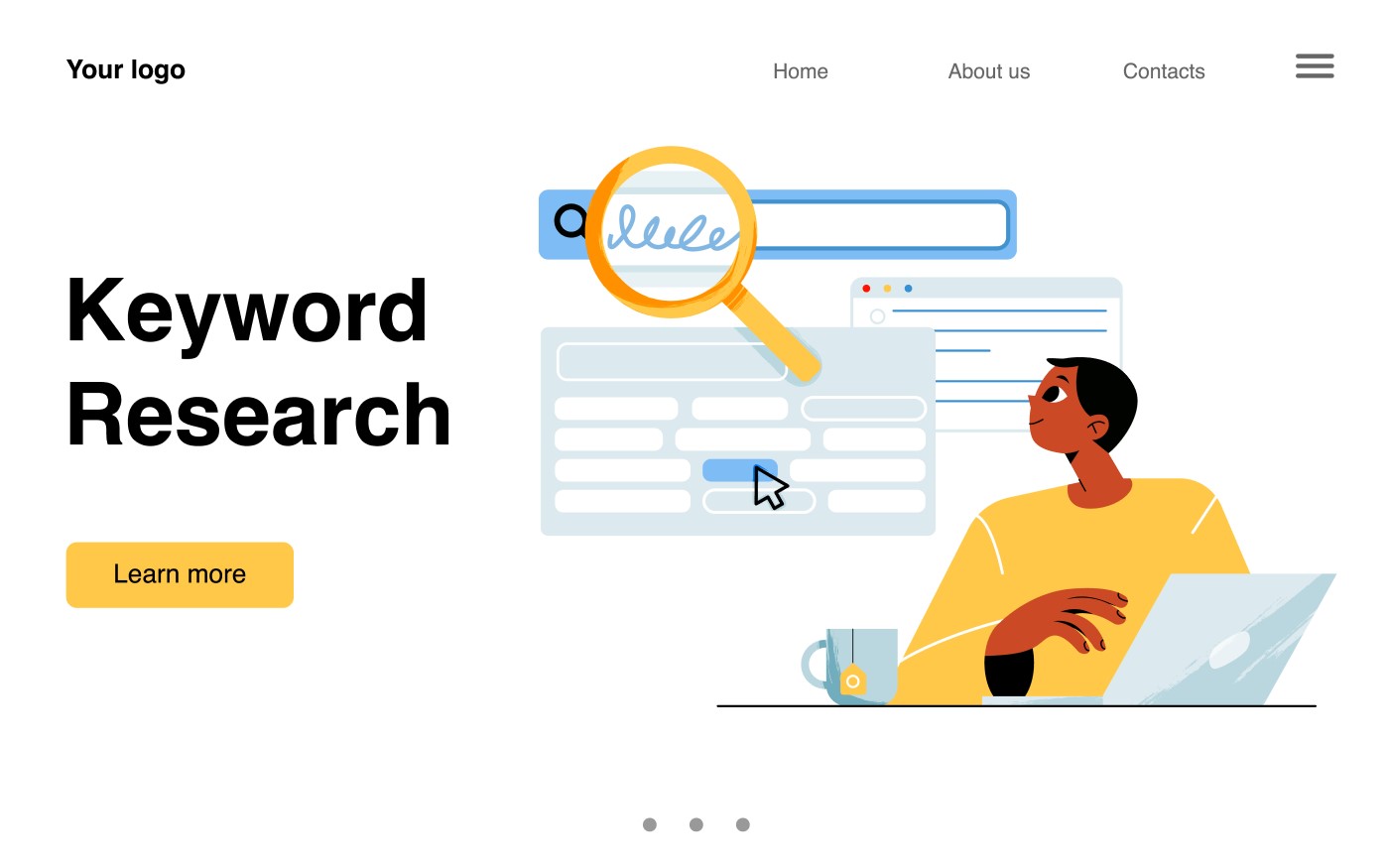How to Conduct Local Keyword Research for SEO
- By: Ankit C.
- In: SEO

Did you know that 76% of smartphone users who conduct local searches visit a business within a day, and 28% of those searches end in a purchase? These stats make keyword research a crucial component of local SEO. So, if you don’t know much about local SEO, keep reading to learn about local SEO and how to conduct local keyword research for SEO.
Through keyword research and analysis, you can choose the most important and relevant keyword to optimise your web design for local businesses. As a result, you can increase your visibility in local search results and draw in more targeted traffic by ensuring that your website and content are optimised to fit your target audience’s needs and search intent. Let’s dive in!
Importance of Keyword Research for Local SEO
Local SEO is helpful because it enables small businesses to connect with prospective clients looking for goods or services in their neighbourhood. Users receive customised results from Google searches, and one of the key determinants of those results is the user’s geographic location.
Most people guess the terms or phrases and think they know how customers find their company online. Unfortunately, this practice frequently results in incorrect keywords or ignoring keywords that might positively impact their bottom line. Therefore, identifying the most potent keywords is essential for local SEO optimisation for small businesses.
If you find the whole process overwhelming, you can always choose the best local SEO marketing agency in the UK to do the job. A local SEO agency for online businesses can deliver the best results, given their subject matter expertise.
4 Tips to Conduct Local Keyword Research for SEO
Regarding the SERPs, Google gives relevance special consideration, and according to 72% of marketers, relevancy is the primary factor in driving SEO ranking improvement. You won’t appear in search results if your material isn’t relevant to what people genuinely seek. Therefore, you must find the most popular and relevant keywords for local SEO. Here are some of the most efficient methods for finding keywords for your website:
1. Find Relevant Industry Related Keywords
Choose keywords that are relevant to your industry. Next, consider the specific words and phrases your target market would use to search for your company. Then, figure out what you would type into Google if you were for a service similar to yours.
These could include anything from brand names to phrases relevant to your business. First, think about the products and services you want to highlight; next, come up with a list of business-related keywords. Then, you can use any of the following steps:
- Use local SEO keywords research tools, such as Ubersuggest, Google Keyword Planner, or Google Trends.
- Study the keywords your competitor is using to outrank them.
- Enter a keyword into the Google search and observe as the autocomplete recommendations auto-fill the search query for relevant local phrases.
2. Use Keyword Modifiers for Local SEO
Creating search-relevant modifiers helps in identifying the ideal local keywords. Modifiers describe a quality, product type, event, or other associative words. Examples include the following terms:
- Best
- Top
- Buy
- Cheap
- Where
- How
These words change the keyword’s meaning and make it more appealing, which can increase clickthrough rates. Additionally, you can include modifiers relevant to your sector. For example, “wedding,” “birthday,” and “delivery” are all important keyword modifiers for a florist. Are you still overwhelmed? A good local SEO agency for small businesses would be the best choice since they usually have the expertise to create a great local SEO keyword research strategy.
3. Check and Analyse Local Search Intent
What do your potential customers want? Are they browsing, looking to purchase, researching something, or all three? Examine search intent after employing keyword research tools to get a list of potential keywords. It entails understanding the motivation behind a user’s search inquiry and the results they seek.
By analysing search intent, you can ensure your content is worthwhile and relevant to your target audience. For instance, if a user searches for “best dentist in [city name],” their goal is probably to locate a nearby dentist. Therefore, rather than writing a comprehensive post about dentistry, focusing on local dentists and their reviews would be more advantageous. This way, you can bring qualified traffic to your site by producing content that matches the local search intent.
4. Understand Implicit and Explicit Local Keywords for SEO
There are two primary ways—implicit and explicit—to target your audience when conducting local keyword research for SEO.
When a user searches for terms like “supermarket” or “gym” but leaves out details like location, this is known as implicit targeting. In this case, Google guesses what you’re looking for and provides location-based results. Investigate implicit local keywords online and connect with customers. Ask them how they would search online for a business similar to yours nearby.
Contrarily, explicit local keyword targeting focuses on consumers’ search phrases to find goods or services in a specific region or location. For example, ‘Local SEO agency in London‘ or ‘Web designing services in Dublin.’
Find Your Local SEO Keyword Today!
Any effective local SEO strategy must include keyword research. Finding and using the right keywords can increase your web visibility, improve your SEO ranking, attract more customers, and grow your business. Therefore, always use keyword research tools, analyse search intent, look at rival keywords, and develop a keyword strategy that supports your business’s objectives. You may master local SEO keyword research by following these tips and keeping up with recent search trends.
We at SRVATECH, a top local SEO agency in the UK, can assist if you don’t have time to gather and include local SEO keywords. We can optimise your website for local keywords thanks to our local SEO experts, who will help you dominate local search results. We can assist you with anything, including incorporating keywords and optimising your local listing.
Learn more about how you may enhance your local listing by exploring our local SEO services. Contact us today. Also, head to our blog section to learn more about SEO and keyword research.






